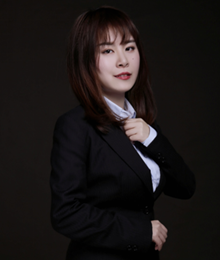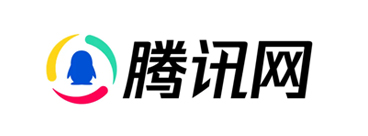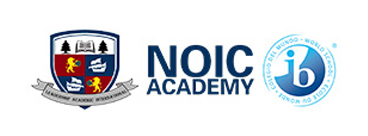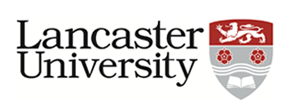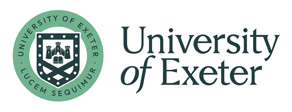How religious are US Independent School Educations?
写在前面
在为孩子选择美国中学时,家长们绝对会综合多方因素进行考虑:地理位置、规模、课程设置、文体活动、社团……
其中,“宗教”这一因素显得尤为特殊——中国的信教家庭比例较少,绝大多数的留学生家庭对此知之甚少。Catholic, Quakers, Episcopalian……这些宗教派别有何关系?又有何异同?
本篇中,我们的“帅哥外教”Grant会为大家讲解美国中学常见宗教的那些事——
【全英文预警!(部分专业名称词汇配有翻译)】
What Do You Know About Religions?
There are many daunting parts of searching for the right American independent boarding school for your child. Everything from location to school size to instruction style and extracurriculars should be at the forefront of your mind.
There is a lesser-known aspect as well, though. An aspect that, while it will probably not shape your child’s entire experience, will probably play a role in their time abroad. That aspect is religion, and you will find in the course of your school search that many independent schools proudly identify with one religion or another.
In order to adequately explain this, a short history lesson is in order. Religion is a confusing subject for many Americans even though we have been exposed to it our entire lives, and I imagine most Chinese people are quite confused about the differences between different sects.
When it first started, Christianity (基督教) was synonymous with Catholicism (天主教). It developed from Judaism (犹太教) with the teachings of Jesus, and was the only Christian religion until about 1400 AD. The Catholic Church did some questionable things leading up to then, and some of their followers, most famously the monk Martin Luther, started Protestantism (新教) as a way to protest what they were doing. Although Catholicism still had a hefty following, Protestant thinking started to spread throughout all of Europe.
(Martin Luther, pioneer of both Protestantism and bowl cuts)
Protestantism set the tone for telling the Catholic Church that they weren’t doing things the right way. In 1534, King Henry VIII wanted a divorce but the Catholic Pope told him he couldn’t (Divorce is still heavily frowned upon in Catholicism).
In response, he started a Protestant religion called Anglicanism (英国国教). This made him the leader of his own church, so he no longer had to listen to the Pope. Henry happily pursued his divorce, and all was well.
(Henry - more than enough man for two wives)
When immigrants first came to the wildlands of America from English, one reason many of them choose to cross the sea was to escape persecution from larger, more established churches. They were fundamentalist Christians in many regards, and although their religions showed similarities to others they all had unique characteristics.
Education was necessary to read and interpret religious texts, and so while most pilgrims had other callings, religious leaders opened schools to further religious teachings. These schools slowly became more secular as the years went on, treating the religious aspects more as guiding principles rather than central focus.
(The pilgrims escaping the old world and settling on the new)
Today, while you might see that many schools have their religious affiliation right in the name, a large number of students attending the school are either atheist (无神论者), agnostic (不可知论者), or subscribe to another religion entirely. In fact, most schools now offer a nondenominational (非教派) prayer time where people of multiple religions can come together to pray, reflect, or meditate on whatever is important to them.
My goal here is to give a quick rundown of some of the differences between various sects of Protestantism and Catholicism. The most important thing to keep in mind, though, is that every school places a different amount of importance upon their affiliation. It is important to ask questions both before, during, and after your interview to try and get the full picture regarding how much your child will be impacted. Having said all that, here is a quick breakdown of some of the religious affiliations you might come across:
Catholic
In the past, Catholic education was famous for its draconian (严厉的) practices. Stern-faced nuns were quick to administer punishment to any children who stepped out of line, and the education was heavily focused upon the Bible. HOWEVER, in most cases, this model of education is no longer followed.
(The current Catholic leader, Pope Francis, pictured here holding up a very fancy Bible)
Catholic schools will generally focus on the core values of the religion; compassion, spirituality, honesty, etc. They will also place a focus upon community service and helping those less fortunate. In a pattern that we will see continue, Catholic schools welcome people from all faiths (or no faith!). They encourage discourse between people with differences, and religious classes will cover most world religions.
Students will see a bit more Catholicism than they otherwise would in the form of Mass, retreats for Catholic students, and various opportunities in Catholic Churches. With that being said, other students will never be pressured into participating and will be free to pursue their own beliefs.
Quakers (AKA Friends)
Quakerism (贵格会) is a very interesting case. It is a Protestant religion that was rebelling against Anglicanism in England a long time ago. We learn about Quakers in our high school textbooks, but many Americans don’t really even know that Quakers are still around. Regardless, they currently have a notable presence in the State of Pennsylvania and run some of the best independent boarding schools in the country.
(The Quaker Oatmeal man, the only Quaker most Americans in 2021 are familiar with)
Quaker values were seen as extreme when they fled persecution in English, but they are values that would resonate with most people today: commitment to peace, opposition to slavery, a refusal to drink alcohol, and plain, nonostentatious (朴素的) dress were all things that set them apart from other Christians in the past.
Now, Quaker schools vary widely in their adherence to Quakerism. Students will not be required to participate in Quaker ceremonies, but Quaker values will run deep in any Friends school. Students should be well-prepared to explain their commitment to these values (not in the context of religion, but instead just in daily life).
Episcopalian
Episcopalian (主教) history is quite confusing, and not terribly relevant for our purposes. Christians who came to America had a falling out with Anglicanism following the Revolutionary war, but then came back into the fold as Episcopalians. Thus, Episcopalian is a sect of Anglicanism. Since the 1970s, they have had very liberal views about homosexuality, women’s rights, and modernization.
(Symbol of the Episcopal Church)
Similar to Catholic schools, Episcopal schools are guided by the characteristics of Christianity rather than preaching to students. They will put the focus on spirituality, but not SPECIFIC spirituality. Students should expect to have time spent in some sort of spiritual seeking, but it won't be a central tenet of their studies.
Grant's Notes
As you can probably see by now, religion should be something you keep in the back of your mind when seeking an independent school but should probably not be a major factor unless you identify strongly with a certain faith (and maybe not even then!).
It would be frowned upon to force religion upon vulnerable others in a place of learning. As mentioned at the start of this article, however, be sure to ask questions at every opportunity. Every school is different, and it is impossible to cover these differences in an article of this length.
Admissions officers will never try to deceive about religion, and will be totally open to questions regarding it. As always, do your own research and treat it all as a learning experience!
这篇简明扼要的“宗教小百科”有没有解开一些您对宗教的困惑呢?其实Grant也提到,本文中提到的各宗教派别确实各有侧重,但本质上,没有一所学校会强加学生任何宗教方面的东西。有这方面担心的家长和同学们可以放120个心啦!

